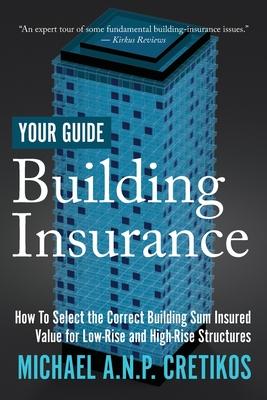Manuscript: Building Insurance: Your Guide
Synopsis-Long Form 22082024 (characters with spaces 3240 Words 476)
Opting for the minimum Replacement Value insurance coverage can result in inadequate or non-existent cover for Architect Fees and Charges and Debris Removal costs due to the potential exhaustion or underfunding of the BSI Value. Minimum insurance replacement value will also not provide for any escalation in building costs and limited or zero accommodation expenses necessary after an Event.
In the case of the insurer declaring a "total loss," it is likely no additional benefits will be provided besides the BSI Value.
Insurance providers limit their liability to incurred costs, as allowed by laws.
There is a variation among policies concerning the provision and execution of supplementary costs, such as for temporary accommodation expenses in strata insurance policies and a safeguard system with non-strata home insurance policies.
For low-rise buildings, I present a method for determining the BSI Value in the event of destruction, catastrophe, total loss, or constructive total loss. This method incorporates an escalation factor for building costs and an escalation period of 104 weeks for accommodation expenses similar to the NSW strata legislation insurance formulation method that incorporates the gross building areas and common areas contents requiring work.
In the case of high-rise buildings, my distinct BSI Value formulation method takes into account Rental Values and extends the escalation period for accommodation expenses to a minimum of 208 weeks, in addition to applying a similar approach used for low-rise buildings. It also addresses local council planning requirements for code compliance, leading to an elevated supercharged BSI Value.
The Rental Values method facilitates a fair and more precise evaluation of proportional disbursement for repairs and maintenance expenses among the diverse space components of the building.
It is important to note that the Insurance Product Disclosure Statement always supersedes the Building Insurance Schedule Offer. To minimize such inconveniences, it would be advantageous to enforce a legally established and well-structured insurance agreement, supported by the thoroughness of the Building Insurance Valuation Report. The Report should encompass the minimum replacement value and the full estimated catastrophe costs value for both strata and non-strata insurance policies.
This would allow for distinguishing between BSI Values for minimum and full expenses. In the event that the estimated total expenses valuation is selected, any additional costs must be capable of being segregated, if required, from the insured value of the BSI Value, subject to potential legislative modifications allowing for such segregation.
Governments recommend that individuals obtain insurance coverage for Full Costs. Nevertheless, in the event that the insured amount surpasses the replacement value, any excess amount beyond the replacement value cannot be readily accessed in times of urgency. As a consequence, insurance policies of various types are fundamentally unjust. If the recommended legislative modifications are not put into effect, the consumer/insured will continue to be deprived of justice. The purpose of this publication is to promote the progress of this matter.
